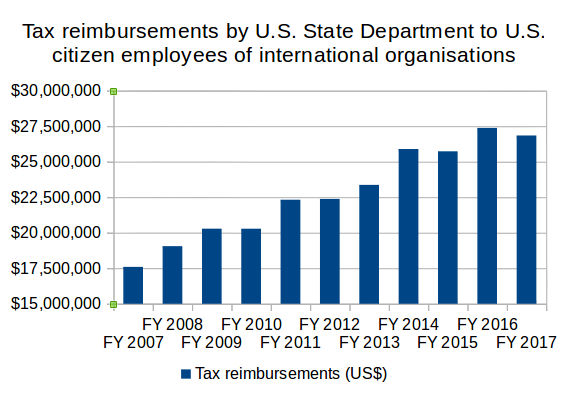In a recent talk (archived) at a Tax Policy Center conference on international corporate taxation, Michael J. Graetz of Columbia University relates the following anecdote:
In Europe, countries generally wanted to strengthen their source-based taxation. The Obama Administration, however, has been determined to strengthen its residence-based taxation of US multinationals. This led a key US Treasury negotiator to remark that, when he was participating in the OECD’s BEPS negotiations, he felt like everyone in the room wanted the US to pay for all the drinks.
That anonymous negotiator represents a country which taxes Canadian disability savings grants, French unemployment assistance, and Hong Kong stimulus payments — all funded by people paying taxes in those places and paid out to people who don’t live in the negotiator’s country. And he’s complaining about other countries wanting to tax economic activity which actually involves their territory (hardly the first time we’ve heard such complaints from one branch of the U.S. government or another).
Well, this is also the country that gave the world the Jackson-Vanik amendment and 26 USC § 891. No surprise there. Meanwhile, Fran Hendy reports that the OECD, rather than complaining about U.S. hypocrisy, has endorsed it — by tweaking its tax haven blacklist criteria so that the U.S. can refuse to participate in the Common Reporting Standard without being declared an “uncooperative jurisdiction”



